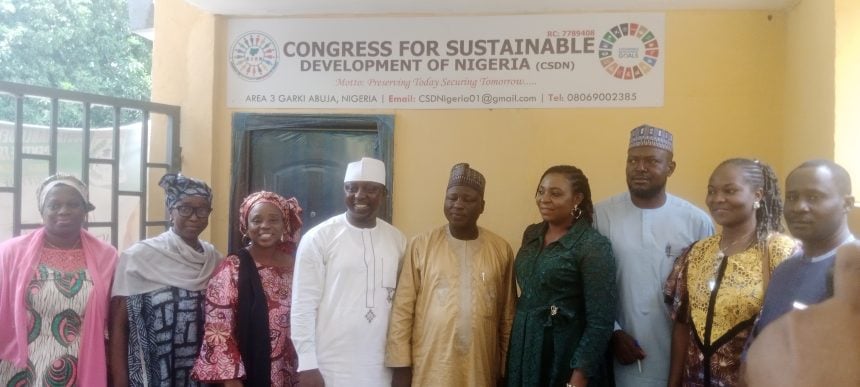The Congress for Sustainable Development in Nigeria (CSDN) has vowed to work in synergy with the relevant agencies of government and other stakeholders on actualisation of the United Nations Sustainable Development Goals (SDGs) set goals by 2030.
Interim National President of the Congress, Mohammed Mustapha James, who spoke over the weekend, emphasised the importance of collaboration by all stakeholders to achieve poverty reduction and other SDG indicators.
Mustapha, spoke during the inauguration of interim executive committee members and official flag off of the congress/membership registration.
He affirmed the commitment group to building a sustainable future for the country by forging strong, inclusive partnerships towards the achievement of the SDG goals.
According to him, the Congress is not a short-term campaign but a lifelong commitment to national development through strategic alliances and continuous engagement.
He emphasised that the Congress was particularly aligned with SDG 17, which stresses the importance of global partnerships in delivering sustainable progress.
“That’s why we are here. We are going to partner with everyone and build great awareness, including with the University of Abuja, and work on capacity building all year long.”
According to him, the Congress intends to involve a wide range of stakeholders across the nation, ensuring no region or group is left behind in the pursuit of development.
He clarified that while the Congress had its roots at the University of Abuja, it is by no means exclusive to the institution. “You don’t need to be from this school to be part of it. The goal is to involve everybody across Nigeria.” He stressed thst inclusiveness and nationwide participation as key to achieving the
Meanwhile, Dr. Limota Giwa, Deputy Director of the Sustainable Development Centre, advocated for a systematic approach to poverty reduction, noting that Nigeria’s poverty problem is central to its development challenges.
“We cannot eradicate poverty, but we can reduce its intensity.” She urged the creation of job centers in all 774 local governments, where real-time data could be gathered on the unemployed, the hungry, and the unwell, so as to channel government efforts effectively.
She also stressed that Nigeria must localise international treaties and train technical personnel to implement SDG-related projects at grassroots levels.
According to her, a decentralized, data-driven, and well-funded approach is necessary to bring about tangible results, especially on key goals like poverty eradication, zero hunger, and quality healthcare.
ALSO READ TOP STORIES FROM NIGERIAN TRIBUNE






